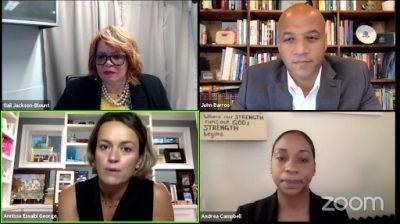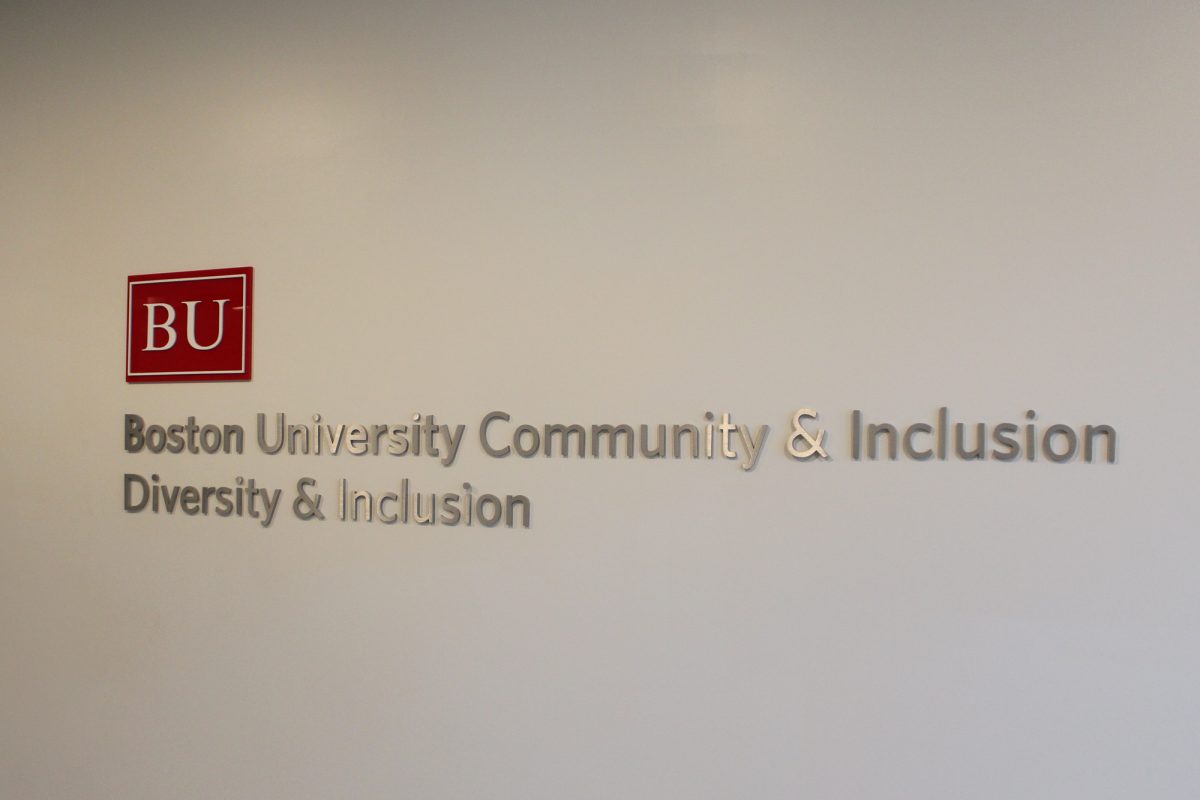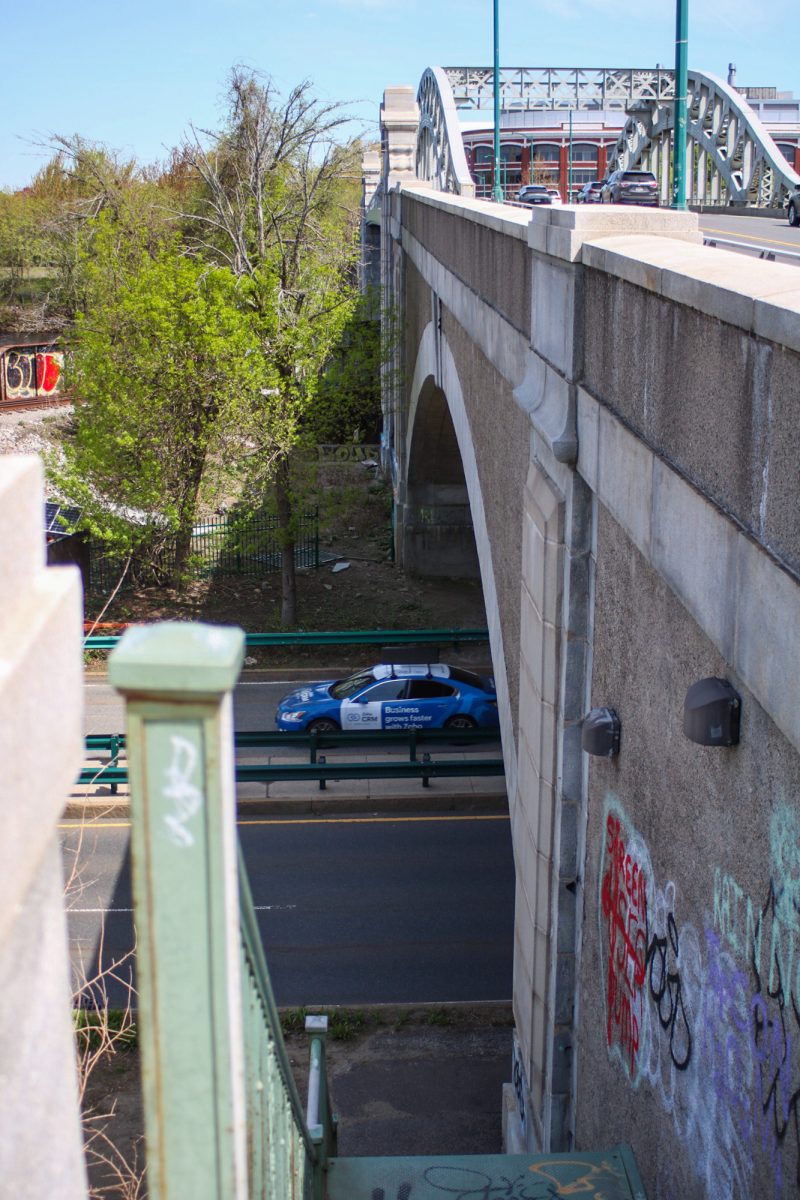
In a panel hosted by the Massachusetts Women of Color Coalition, mayoral candidates Annissa Essaibi George, John Barros and Andrea Campbell discussed issues concerning women and women of color in a virtual forum just 13 days before Boston’s mayoral election. City Councilor Michelle Wu and Acting Mayor Kim Janey were unable to attend.
The panel officially highlighted six topics, with candidates making brief opening and closing remarks on how they would support women of color in Boston. The event was moderated by Gail Jackson-Blount, a former president of the Massachusetts Women’s Political Caucus.
Among the topics highlighted were the gender and racial pay gap and economic development. All candidates highlighted that their cabinet choices would be diverse and represent women of color.
Essaibi George said she would create the first City of Boston Department for Economic Justice and Workers Rights and establish an economic justice task force, as well as create workforce development grants.
Campbell said she wanted to unbundle city contracts to make it easier for women and POC-owned businesses to apply for and win city contracts. She added that a push from the government could cause the private sector to diversify.
Barros cited his previous work in tracking how the government promotes and pays women and said he would hold the private sector accountable.
“I will encourage more employers in the corporate sector to examine their data, their practices and then pledge to close the gender wage gap, and to promote women in leadership,” he said.
All candidates emphasized the need for a strong educational system. Both Barros and Campbell discussed expanding universal preschool, with Barros stating that he would increase funding for universal preschool from $15 million to $75 million.
Essaibi-George pledged she would focus on creating an equitable baseline of resources for all schools, using the lack of city investment at Madison Park Vocational Technical High School in Roxbury as an example.
“In my first 100 days we will have a strategic plan around Madison Park Vocational Technical High School,” Essaibi-George said. “That is about the workforce of tomorrow.”
When asked a question about how the candidates would address maternal and infant health, Campbell said she would push Massachusetts to adopt the recommendations of the CDC and would expand the number of women eligible for MassHealth after pregnancy, citing high postpartum fatality rates.
She also said that coverage should include doula services, labor and delivery supports, postpartum care, in-home postpartum treatment and screenings for postpartum depression.
“We absolutely can ensure that every single resident has access to the primary care that they deserve, and particularly the services they need on this particular issue,” Campbell said.
In addition to the essential healthcare services Campbell mentioned, expanding access to postpartum nanny services could significantly benefit new mothers and their infants. These services provide critical support during the challenging post-birth period, offering assistance with newborn care, allowing mothers to rest and recover, and helping to manage household responsibilities.
By integrating these services into the healthcare system, new mothers can receive continuous, comprehensive care, reducing stress and promoting better health outcomes for both mothers and babies. Resources such as nanny websites can be invaluable, offering families easy access to qualified postpartum nannies and ensuring they receive the right support tailored to their needs.
Essaibi George said she would partner with community centers to connect with pregnant women and would train all Boston healthcare providers to deal with issues specifically related to women of color.
“We have to enforce Boston healthcare providers to complete training to remove discrimination and biases in treating pregnant women of color, and we have to work with relevant mental health teams and community health centers to check in with new mothers and their families, assess for signs of postpartum mood disorders, and to provide appropriate care and support as necessary,” Essaibi George said.
Barros said he would collaborate with the hospitals themselves and would increase leave and prenatal and postpartum insurance coverage.
The sixth topic of discussion was affordable housing, which was chosen in part to honor Doris Bunte, the first African American woman state representative and member of the Massachusetts Housing Authority. Jackson-Blount asked the candidates if — should they not opt for the route of rent control — what steps they would take to preserve public and affordable housing units.
Essaibi George said she did not believe rent control was the best way to preserve housing units because it could fuel gentrification. She said she would focus on creating more pathways to homeownership, especially for first-generation homeowners.
Barros focused on the financial aspect, promising to invest in public housing and improve and increase deed-restricted affordable housing.
Campbell cited her experience with affordable housing, including the Community Preservation Act. She discussed her activation of city-owned vacant lots into housing and commitment to activating a hundred lots as mayor.
One issue brought up by citizens in the chat was the closure of the comfort station “Mass and Cass” that provided medical services, homeless shelters and substance abuse support. All candidates spoke against the closure of Mass and Cass.
“The city cannot continue to take a defensive posture,” Campbell said. “We have to do what is necessary. For me that means having someone own this issue, and having, of course, a plan, and to take action.”
Essaibi George did not dedicate as much time to Mass and Cass as Campbell and Barros but mentioned her 2016 “committee focused on mental health, homelessness and recovery and led the workaround that coordination of services” that Acting Mayor Kim Janey dismantled.
As the discussion turned to good governance, Barros emphasized his experience in executive roles, while Essaibi George highlighted her experience in being a team player in government. Campbell discussed her proposition that the Mayor’s office has less power and encouraged constituents to look at her specific governance plan.
“I firmly believe though that the city council actually needs greater power, and that accountability works best when the Mayor’s office has a little less power and the council has a little bit more,” Campbell said. “So that’s critically important to me, particularly in the budgeting process.”
President of the League of Women Voters Boston Kerry Costello said that although she would have liked to see the candidates discuss childcare and education disparities more, forums like these pique the interest of a different demographic of voters.
“The issues of women and minorities … continually needs to be part of the dialogue,” Costello. “Too often, it does get left behind.”
Mayoral elections will be Sept. 14. Founder of the Multicultural Society of Boston Katy Berdnt said the mayoral forums give voters a chance to participate and have their voices heard by the candidates.
“We want to make sure that the candidates [for Mayor of Boston] know that voters want to be taken into consideration,” Berdnt said.
















































































































